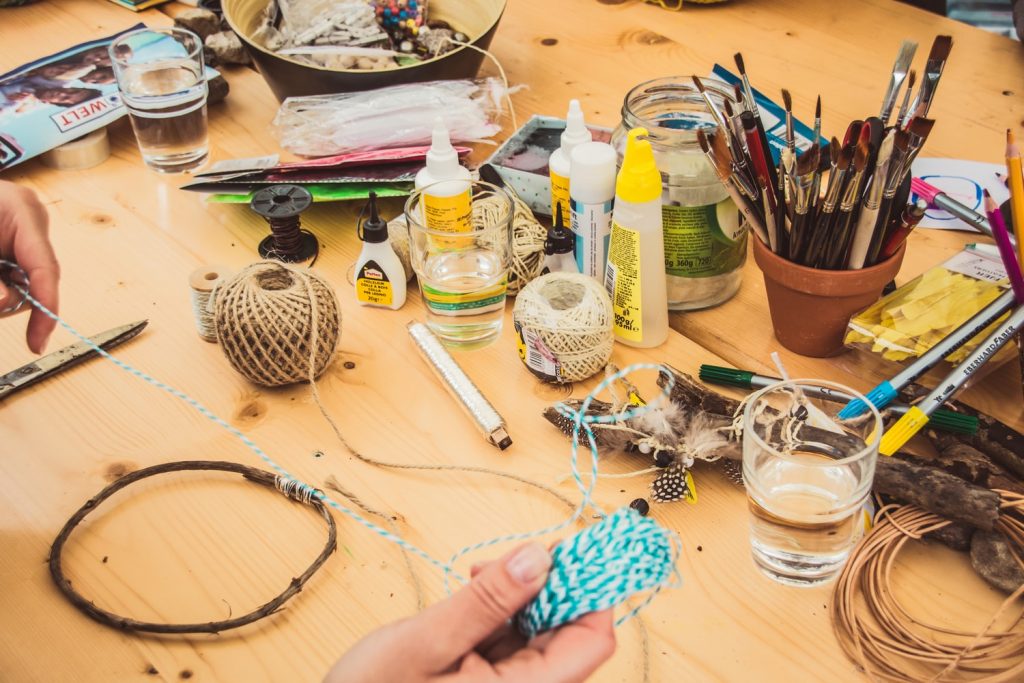Some people just have a knack for fixing and creating things with their bare hands. Whether their hands-on experience came from a lifelong interest in handiwork or their skills were born out of necessity, there are a few things that every DIY-er has learned at some point along the way. If you’re looking to get into do-it-yourself crafting or want to pick up a few skills to be more useful around the house (perhaps to impress the wife) here are some things to remember.

Your Toolkit is Your Best Friend
As skilled as you might be, a good DIY-er knows that they’re nothing without their tools. Your equipment is the real driving force behind any project which means that having good quality and reliable tools in your arsenal is crucial. The kind of equipment you’ll need to obtain is dependent on the kind of work you typically find yourself doing. However, having a basic toolkit as well as some precision hand tools is a good starting point for any DIY projects. We recommend investing in bigger and more specialised pieces of equipment only as the need for them arises for long-term projects or when you notice a repeated need for something.
Sometimes it’s Not Your Job
Many DIY-ers take a knock on their pride when they find themselves struggling to fix or create something. It’s important to remember that certain tasks and projects require specialised equipment that might only be learned through a professional qualification and experience. A DIY pro knows when to take a step back and reach out to a professional for a job. Making these kinds of decisions are often important to ensure your own safety and ensure that the quality of your finished product or project is up to standard. If you find yourself without the skills to complete a task, don’t hesitate to chat to someone who could help you or research ways that you can learn the skill yourself.
Getting the Right Materials
After your equipment is sorted, one of the most important factors to a successful DIY project is obtaining the right materials for the job. This could entail anything from paint, tiles and grouting, piping wires, wood, you name it. When you’re not used to working excessively with a certain material, it can be hard to know which kind is best for the job. It’s a good idea to do some research online before heading out to the store and better yet, talking to the assistants will be your best bet. Explaining to them what your project is and what you’ll be using the materials for will help them understand your needs and recommend the right materials for the job.
Know your Shortcuts
Taking shortcuts and using quick fixes can either be a blessing or a curse and it’s important to know when it could be appropriate, cheap and helpful, and when it’s just a bad idea. Taking shortcuts in decorative projects like applying wallpaper can be easier on your pocket and your schedule. However, more serious jobs like building furniture that needs to be sturdy, or fixing piping will require more focused and thorough attention, as well as the best quality materials you can access and afford. If you’re unsure about whether a quick-fix will work for you, your skillset and your project, check for information online or chat to a professional before making any decisions.
Do the Admin
By admin, we don’t mean filling in paperwork or replying to business emails. We’re talking about the boring, nitty-gritty aspects that come alongside any fun or important project. Each task is going to have certain preparatory or post-work steps that may seem tedious but will be crucial in the long run. This includes things like laying down a canvas before painting your walls, and cleaning up and caring for all your tools and equipment when you’re done with a project or packing up for the day. Neglecting to do these small tasks can lead to a bigger and more problematic clean-up process at the end of everything, and neglecting to take care of your tools can prove to be expensive when you need to replace important parts more regularly than you should.
Conclusion
Starting to do your own DIY projects is a fun and exciting task to take on and can make you feel really accomplished. However it’s important to put your safety first and ask as many questions as you need to when you’re just starting out, and you’ll be a pro in no time.